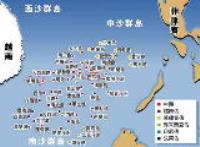【Freedom of Navigation and Overflight】
Since China relies heavily on maritime trade to grow its economy, China is equally eager for the freedom of navigation throughout the world like other countries. While ensuring the freedom of navigation for other countries in waters under its jurisdiction in accordance with international law, China hopes other countries to provide the same freedom to its ships sailing in their waters. China and other major shipping countries have shared interests in guaranteeing the freedom of navigation. All nations in and out of the region benefit from such freedom. The Chinese government is a staunch supporter and guardian of the freedom of navigation, and it will never make a fuss of the issue, because such a move is not in line with the fundamental interests of China. The freedom of navigation in the South China Sea has never been affected by the South China Sea territorial dispute at all, as such the problem of freedom of navigation in the region is a pseudo-proposition.
As a matter of fact, 50 percent of the world’s merchant fleets go through the South China Sea each year, but there is not a single report in which a merchant ship is impeded in the region because of problems associated with the freedom of navigation. The warships and military aircrafts of US and other countries have quite often transit through the South China sea for the purpose of friendly port visit, disaster relief, return to and from their military bases without any impedance. In fact, China welcomes American military vessels that aim for friendly visits and cooperation, as seen in a series of mutual visits and escort drills between Chinese and American navies. Then why are there always people who try to play up the issue of the freedom of navigation in the South China Sea? Futhermore, China has made it clear that it is committed to the freedom of navigation and no merchant ship has been impeded in the region. Foreign parties often allegedly raise the issue for two reasons. First, they purposefully mix up the South China Sea territorial dispute with the freedom of navigation. Indeed, it remains a mere fact that China has disputes with other countries over sovereignty of some islands and maritime delimitation, but China insists that these disputes should be resolved through bilateral negotiations based on international law, and it has conducted effective dialogues and consultations with countries concerned. An earlier example is the agreement China has reached with Vietnam on the delimitation of the Beibu Gulf. These disputes over sovereignty and maritime delimitation, however, have nothing to do with the freedom of navigation, nor have they negatively affected the freedom. Those who try to link them up usually have an ulterior motive for doing that.
Second, they mix up the freedom of navigation for merchant ships with that of illegal activities of military vessels and aircrafts. American military surveillance ships conduct sweeping reconnaissance and surveillance tasks each year in China's Exclusive Economic Zones to collect intelligence. Although the United Nations Convention on the Law of the Sea stipulates that coastal states have the exclusive jurisdiciton to matters of marine scientific research in their EEZs and China has enacted laws governing foreign vessels conducting scientific research in Chinese EEZ, the United States's action manifested a complete disregard for those rules and even claims that these ships are used for military survey rather than scientific research. Apart from the legal issue, reconnaissance is in itself a hostile act, demonstrating the deep distrust between the two sides.
For example, in the Impeccable incident in 2009, the American surveillance ship traveled thousands of miles all the way to conduct reconnaissance activities at China's door, while the United States claimed that China has impeded its right of freedom of navigation. The following metaphor may not be proper but still serve to explain the hegemonic logic behind. Imagine that a thief is stealing something from an innocent person. When the innocent becomes more alert and keeps a closer eye on his wallet, the thief accuses the innocent of undermining his freedom of stealing.
Furthermore, some US officials make irresponsible claims that the US military aircrafts should cross through China's territorial airspace over China's Nansha islands and reefs to enforce the freedom of navigation. Based on US military claim, the freedom of navigation is not to pass the international sea lanes of communication in the open area of the South China Sea, but means to circumvent those international corridors and cut directly through China's territorial waters and airspace. This is a sheer threat, blackmail and as well a manifestation of jungle law. If the US insists on that the freedom of navigation in international law includes the free navigation and over-flight in a foreign country's territorial waters and airspace over it, I would like to ask whether ASEAN countries like Philippine, Vietnam, Malaysia, Indonesia and other regional countries like India, South Korea and Japan all agree to US's position. If those countries agree that based on this concept US and other countries’ military vessels and aircrafts can freely access their territorial waters and its above airspace. If those countries do agree with the US and intend to develop the so called regional customary international rules, China would really be in a difficult position to decide whether it want to be a persistent objector or not.
Third, quite a few countries believe that the accusation of impeding and damaging the freedom of navigation against China is more acceptable by nations and peoples that are not familiar with facts. So they have leveled unfounded and unjust accusation at China and acted as a world judge eager to protect global justice. In western countries the judge acts with conscience in judgment, but when it comes to China, their conscience seems to have disappeared.
Fourth, the fact that the freedom of navigation for Chinese ships is impeded is intentionally ignored. Chinese navy often conduct technical trainings in high seas in western Pacific, as navies in other countries often do. Japanese media always hype up China's normal operations, and make carping comments on Chinese warship' passing the Miyako Strait and other international straits, and on these occasions, those countries which had wrongly blamed China for impeding the freedom of navigation tended to turn a deaf ear to the criticisms.
|

